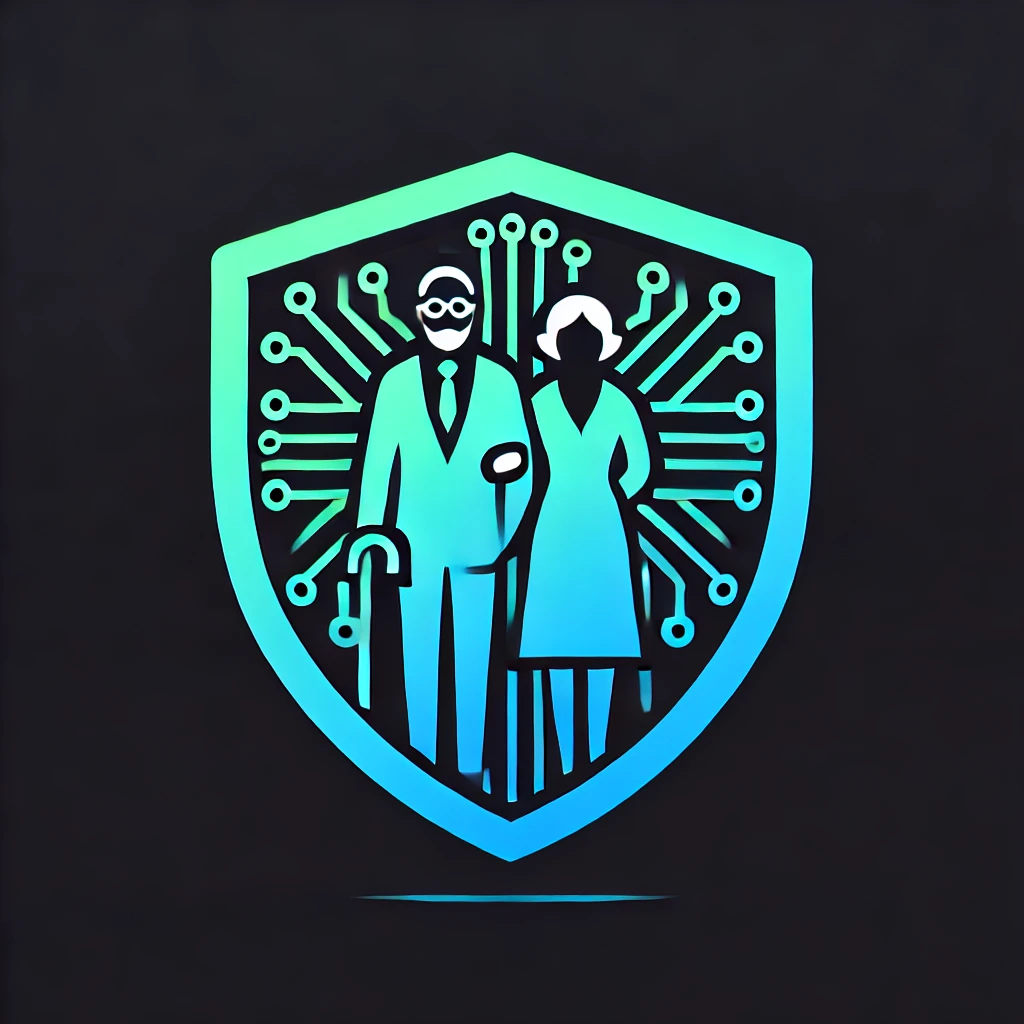The internet offers numerous benefits for seniors, from staying in touch with family to accessing information and managing finances. However, the online world also presents significant risks, including scams, identity theft, and cyber fraud. To ensure seniors can confidently navigate the digital landscape, it is essential to equip them with knowledge and tools to stay safe online. Here are practical tips to help seniors protect themselves in cyberspace and an overview of how Senior Web Warden is playing a crucial role in educating and empowering them.
1. Recognizing Online Scam
Seniors must be aware of common online scams, including phishing emails, tech support fraud, and fake charities. Scammers often impersonate banks, government agencies, or even loved ones to extract personal information.
How to Stay Safe:
- Never click on links in unsolicited emails or text messages.
- Verify requests for personal or financial information by calling the organization directly.
- Be skeptical of urgent messages that pressure immediate action.
2. Using Strong Passwords and Two-Factor Authentication
A strong password is the first line of defense against cyber threats. Two-factor authentication (2FA) adds an extra layer of security, requiring a second form of verification, such as a text message code.
How to Stay Safe:
- Use long passwords with a mix of uppercase and lowercase letters, numbers, and symbols.
- Avoid using easily guessed information like birthdates or pet names.
- Enable 2FA for email, banking, and other important accounts.
3. Safeguarding Personal Information
Seniors should be cautious about sharing personal details online, including social media platforms. Cybercriminals can use publicly available information to commit fraud.
How to Stay Safe:
- Adjust privacy settings on social media to limit access to personal information.
- Be wary of friend requests from strangers.
- Avoid posting travel plans or personal details that could be exploited.
4. Avoiding Public Wi-Fi Risks
Unsecured public Wi-Fi networks at cafes, libraries, or airports pose significant security risks. Hackers can intercept sensitive information, such as passwords and financial details.
How to Stay Safe:
- Avoid online banking or shopping while on public Wi-Fi.
- Use a Virtual Private Network (VPN) for added security.
- If necessary, use personal mobile data instead of public networks.
5. Identifying Fake Websites and Online Shopping Scams
Fraudulent websites trick seniors into providing payment details for non-existent products or services.
How to Stay Safe:
- Shop only from reputable websites with “https://” in the URL.
- Read online reviews before making purchases.
- Be cautious of deals that seem too good to be true.
6. Recognizing and Reporting Elder Fraud
Many seniors do not report fraud due to embarrassment or fear. Recognizing scams and reporting them can help prevent future crimes.
How to Stay Safe:
- If scammed, report the incident to local authorities or consumer protection agencies.
- Educate friends and family members about known scams.
- Participate in educational sessions to stay informed.


Senior Web Warden’s Role in Online Safety for Seniors
Senior Web Warden is dedicated to empowering older adults by providing education, resources, and community support to prevent online scams and fraud. Through various initiatives, we ensure that seniors receive the necessary training to navigate the internet securely.
1. Educational Sessions at Senior Living Centers
We partner with senior living centers to conduct interactive workshops on digital safety. These sessions cover:
- Identifying online scams and fraud prevention techniques.
- Safe social media practices and managing privacy settings.
- Secure online banking and shopping tips.
2. Library-Based Digital Literacy Programs
Local libraries serve as excellent hubs for senior education. Senior Web Warden collaborates with libraries to offer:
- One-on-one tech assistance sessions.
- Group workshops on cybersecurity basics.
- Printed materials and online resources tailored for seniors.
3. Webinars for Seniors Nationwide
For seniors who prefer learning from home, Senior Web Warden offers virtual webinars on internet safety. These sessions include:
- Live demonstrations on recognizing phishing emails and fraudulent websites.
- Q&A sessions with cybersecurity experts.
- Step-by-step guidance on enabling device security settings.
4. Student Volunteer Training & Community Engagement
A unique aspect of our program is engaging school students to help educate seniors while earning volunteer hours for their academic requirements. This initiative includes:
How It Works:
- Students receive training on digital safety and best practices through our structured program.
- Students conduct in-person sessions at senior living centers and community hubs, assisting seniors in understanding online risks.
- Volunteer hours are credited to students for their participation, fostering intergenerational learning and community service.
This program benefits both seniors and students:
- Seniors gain confidence in using the internet safely with the help of younger digital natives.
- Students develop communication skills, empathy, and a sense of civic responsibility.
Final Thoughts
Staying safe online is a collective effort that requires awareness, education, and vigilance. By implementing these security measures, seniors can continue to enjoy the benefits of the internet without falling victim to cyber threats.
Senior Web Warden is committed to protecting seniors from digital fraud. We encourage seniors and their families to take advantage of our senior center workshops, library programs, webinars, and student-led community initiatives. For more information or to schedule a session, visit our website or contact us today!


Leave a Reply